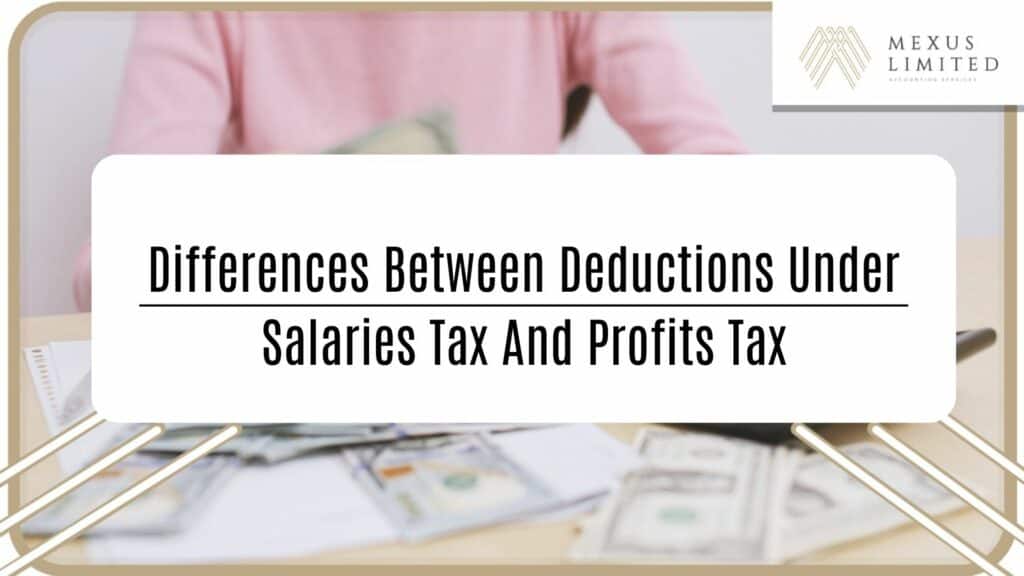Differences between deductions under salaries tax and profits tax

According to the Salaries Tax Ordinance, the deductions claimed by taxpayers must be all, pure and necessarily be used to generate relevant assessable income. Among them, the word (necessarily) is stated in the Departmental Interpretation and Practice Notes No. 9 (revised) of the Tax Regulations that the expenditure should be necessary for the execution of the work. In other words, if there is no such expenditure, the taxpayer cannot work to generate income. Therefore, if the employment contract does not require employees to bear the necessary expenses, or the taxpayer can perform the relevant duties without such expenses, it is difficult to deduct the expenses. One example is that taxpayer who are engaged in estate agency work in Hong Kong must have a valid salesperson’s license or estate agency license. Without this license, they cannot perform related duties. The fees paid for the relevant licenses are deductible under salaries tax.
However, if the taxpayer is operating a business, the expenditure is allowed to be deducted as long as it is to earn assessable profits. The expenditure is related to the nature of the business, and it is an expenditure incurred by the operation of a general company.
Obviously, the Inland Revenue Department requires that taxpayers not only provide proof for the deduction of expenses claimed under salaries tax, but also provide strong supporting arguments. It is more difficult to obtain a deduction than the expenses listed under profits tax.
The above information is for reference only. If in doubt, we welcome your tax inquiries

